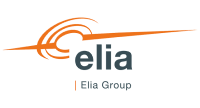Everyone's a leader here
At the end of January, Elia was named a Top Employer for the fifth consecutive year. The operator of Belgium's high-voltage transmission system owes this success in part to the way the organisation has integrated new ways of working into its strategy and culture. "Everyone's a leader here: that's our starting point."
Elia has been named one of Belgium's best employers for five years in a row. The Top Employer label recognises companies that offer their people an excellent working environment. As such, the accolade reflects the intensive HR and policy work undertaken by the organisation in recent years – part of the long-term commitment needed to become, and remain, an outstanding employer. "Here at Elia, strategy, corporate culture and new ways of working form a unified whole: that's our recipe for success," says Hanne De Wit, HR Business Partner at Elia.
Today, the organisation finds itself on the front line of the energy transition, with exciting new technological developments, sustainability innovations, supranational collaborations and a digital transformation. In other words, Elia is undergoing a lot of changes all at the same time, and these also impact how it works. "In order to balance all these factors in an optimal way, an integrated approach is essential," says De Wit.
Co-creation and (self-)leadership
Elia's new ways of working start from co-creation and self-leadership – the idea that everyone in the organisation is a leader, is best placed to organise their own work and is given the necessary freedom to do so. De Wit says: "We believe in providing a framework with guidelines but without fixed rules, inside which people can do their jobs flexibly. That isn't the same as absolute freedom: obviously, employees have to complete their tasks and projects and meet their deadlines, but a people-oriented approach is central."
This approach is the result of the New Way of Working (NWOW) toolkit that Elia recently developed, containing tips and tricks and best practices for new ways of working. All people managers have started using this kit with their teams, resulting in agreements and freedoms being laid down for each team, depending on responsibilities and duties. "For example, each team knows which activities are compatible with remote working and which are better suited to in-person meetings," explains De Wit. "There are also agreements about which digital collaboration tools to use, and so on. Within this framework, employees are given the necessary autonomy and trust to organise their work as they see fit, and to generate and experience impact themselves through their job."
Feedback culture
At Elia, employees are also given the freedom to provide feedback about their way of working and about collaborations. For example, when two teams – each with their own work guidelines – have to work together, the freedoms of both teams can be aligned where necessary. "We haven't laid down any specific rules for this either," says De Wit. "We trust our people to assess for themselves what's working and what isn't, and then to come up with solutions together. Agreements can be adjusted as well: after all, this is an ongoing process that has to be constantly evaluated."
Giving, asking for and receiving feedback is also something that emerged from Elia's Make A Difference programme. Optimally aligning corporate culture with strategy, the programme was launched to enable set goals to be achieved together as an organisation. "This programme was also designed in partnership with employees," says De Wit. "It brings together our strengths, such as a strong sense of responsibility, extensive knowledge and experience, and a high level of professionalism. But it also addresses some areas requiring attention, including (at that time) a lack of feedback. We subsequently emphasised this within the teams, made our employees aware of the issue and encouraged them to ask for feedback."
Development and well-being
Elia employees are also given freedom when it comes to training. The Digital Academy allows people to brush up or expand their knowledge within specific professional domains according to their personal preferences, job requirements and needs, on an à la carte basis and at their own pace. "So at the same time we're giving our people the opportunity to keep their knowledge and careers moving," explains De Wit. "We also see this as a means to keep people on board. Here too, we don't believe in a one-size-fits-all approach."
Elia always keeps its finger on the pulse where its workforce is concerned. The organisation regularly gauges employee experience and general well-being by means of 'pulse checks'. "Employees themselves indicate where more direction is needed," says De Wit. "These surveys have a very high response rate, which shows that our 1,500+ employees really feel involved. In fact, taking a bottom-up view of our organisation is part of our DNA." Later this year, Elia will also launch a promoter community, where people can volunteer to help roll out new initiatives around specific needs and topics.
Care4Energy and Office 2.0
Another inspirational initiative at Elia is the Care4Energy programme, which alerts employees to the importance of good physical and mental health. "We work on this with both management and employees," explains De Wit. "Managers are given training on, among other things, detecting and tackling stress in their teams. On the employee side, we want to raise their awareness by making it clear that good health is often a responsibility shared by both employer and employee."
In addition, Elia has redesigned some of its office environments based on new ways of working and feedback from employees. De Wit says: "In making these changes, we factor in hybrid working, with digital communication solutions, and activity-based working, for example through flexible spaces for different activities, including brainstorming, project work, focus assignments and team meetings." Last but not least, De Wit emphasises the many benefits that result from the intensive focus on self-leadership. "We see leadership as collaborations that get things moving, delivering results and impact."
